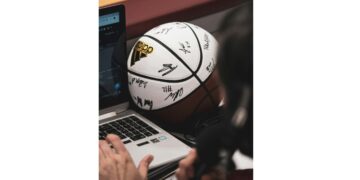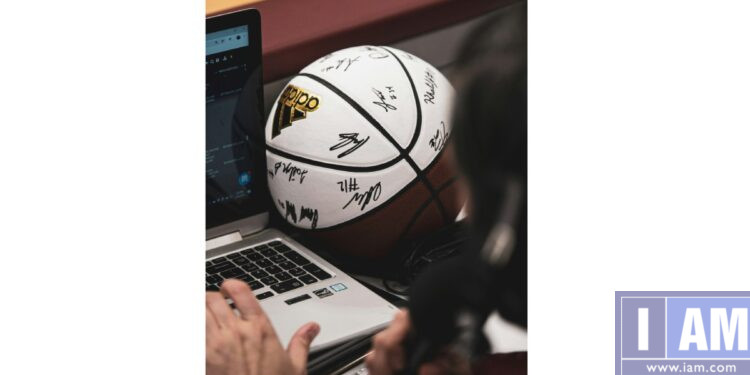DISCLAIMER: This article gives you a rundown on Name, Image, and Likeness (NIL) regulations. Keep in mind this is not a substitute for getting the proper legal or financial advice. That’s where your school’s compliance office and possibly your lawyer might come in. NIL rules are all over the place. They vary by state, school, and conference. Because of this, make sure to check in with your school and consider getting some outside legal help before you start doing anything with your NIL.
For over a century, college athletes have been raking in the dough for their schools while getting by on scholarships and a bit of extra cash for their living expenses. But all that changed on July 1, 2021, when the NCAA threw in the towel on its amateurism rules. Suddenly student-athletes were free to make some real money off of their Name, Image, and Likeness (NIL). If you are a student-athlete now or plan to be one in the future then knowing about your NIL is NOT optional. This knowledge is crucial to you if you want to make the most of college and get your post-sport career off the ground.
What is NIL Anyway?
So what exactly is Name, Image, and Likeness (NIL)? Well, it boils down to your personal brand rights: the right to control and profit from who you are as an individual. That means your name is literally your identity. Your image is all about photos, videos, and showing up to stuff. And your likeness is everything that makes you, you – catchphrases, celebrations, all that fun stuff.
Before NIL, your school and media companies were making bank off of your jersey sales, video game appearances and all sorts of other stuff while you were on the other side of the ledger, with nothing to show for it. Now, though, you own those rights. You can sign endorsement deals, sell autographs, run camps, create content – all the while still keeping your NCAA eligibility intact.
What NIL Means for You (Even If You’re Not a Star)
You don’t need to be a big-name star to make money off of NIL. While the star quarterback is raking it in with six-figure deals, the 2,000 person strong local fanbase of that average lineman could translate into a nice $500 per month from a local restaurant. The softball player can run hitting clinics, and the track athlete can coach virtual training sessions. NIL levels the playing field across all sports and divisions.
And the best part is that NIL doesn’t just benefit sports careers. The business skills you develop – negotiation, marketing, brand management, financial planning – are all transferable skills that can get you jobs anywhere. Your NIL activities become resume builders, networking opportunities, and even entrepreneurship training grounds. Many athletes find out what they really want to do next by way of NIL partnerships.
What You Can Do
- Make endorsement deals: Team up with businesses to shill their products or services via social media, public appearances, or good old-fashioned ads.
- Sell merchandise: Create and sell your own branded tees, hoodie, whatever – just make sure it’s all legit.
- Make some cash off your social media: Get paid to be an influencer, sign up with a creators fund, or offer exclusive content on a pay-for-play platform.
- Offer services: Host camps, clinics, private coaching sessions, public speaking gigs, or even just sign your name for cash.
- Get some donations: Take tips from fans on platforms like crowdfunding, or through “tip jars”.
- Get your own representation: Work with agents, lawyers, or marketing firms – you’ll probably have to pay them out of your earnings, though.
- Start a business: Form an LLC or other business entity to manage your NIL activities like a pro.
What You Can’t Do
- Use school marks without permission: You can’t rock your team’s jersey in an ad without getting the green light from your school.
- Accept pay-to-play deals: Any NIL income you make has to be for real business stuff, not just for playing ball or committing to a school. No scoring bonuses or commitment payments allowed.
- Break the rules: Be aware of any school or conference rules that prohibit deals with certain industries (gambling, alcohol, etc.) or with companies that compete with school sponsors.
- Be sketchy about disclosing: In most states you have to report your NIL deals to your compliance office within a week or so.
- Forget about your schoolwork: Don’t let NIL stuff get in the way of keeping up with your schoolwork – class attendance, team requirements, all that jazz is still important.
- Use NIL deals to secure enrollment: High school athletes can’t typically sign NIL deals that depend on them enrolling at a particular school – though this is getting sorted out.
Getting Started the Right Way
Step 1: Get Educated – Show up at your school’s NIL workshops. Understand your state laws, NCAA rules, and school policies – they vary like crazy between places.
Step 2: Make Your Brand Shine – Get yourself a professional social media presence separate from your personal one. Register for business platforms like LinkedIn. If you can swing it, get your own domain name.
Step 3: Keep Records – Log all your communications, contracts, and payments – you’ll need ’em come tax time (and for compliance reporting).
Step 4: Build Your Team – At least check in with your compliance office before any deal. As you get more NIL activity going, consider getting some outside help – a good agent for deals, a good accountant for taxes, a good lawyer for contracts.
Step 5: Start Small – Your first deal doesn’t have to be a home run. Local businesses are often a great place to learn and build your portfolio. NIL basically represents the biggest game-changer in college athletics history. For any student whether youre a 5 star recruit or just a walk on, getting a handle on these rights means you can set yourself up for financial security and pick up valuable professional skills while you’re still in college. But with this kind of opportunity comes some big responsibilities too. Every contract you sign, every post you make, and every partnership you get into is going to end up reflecting on your personal brand – one that can bring you value long after your college eligibility has expired.
So get started learning – the fact is your name, image, and likeness are all assets that have value. The thing is not whether you decide to get involved in NIL or not, this is about figuring out how to make the most of it in a way that makes sense and protects your eligibility and your future.


















